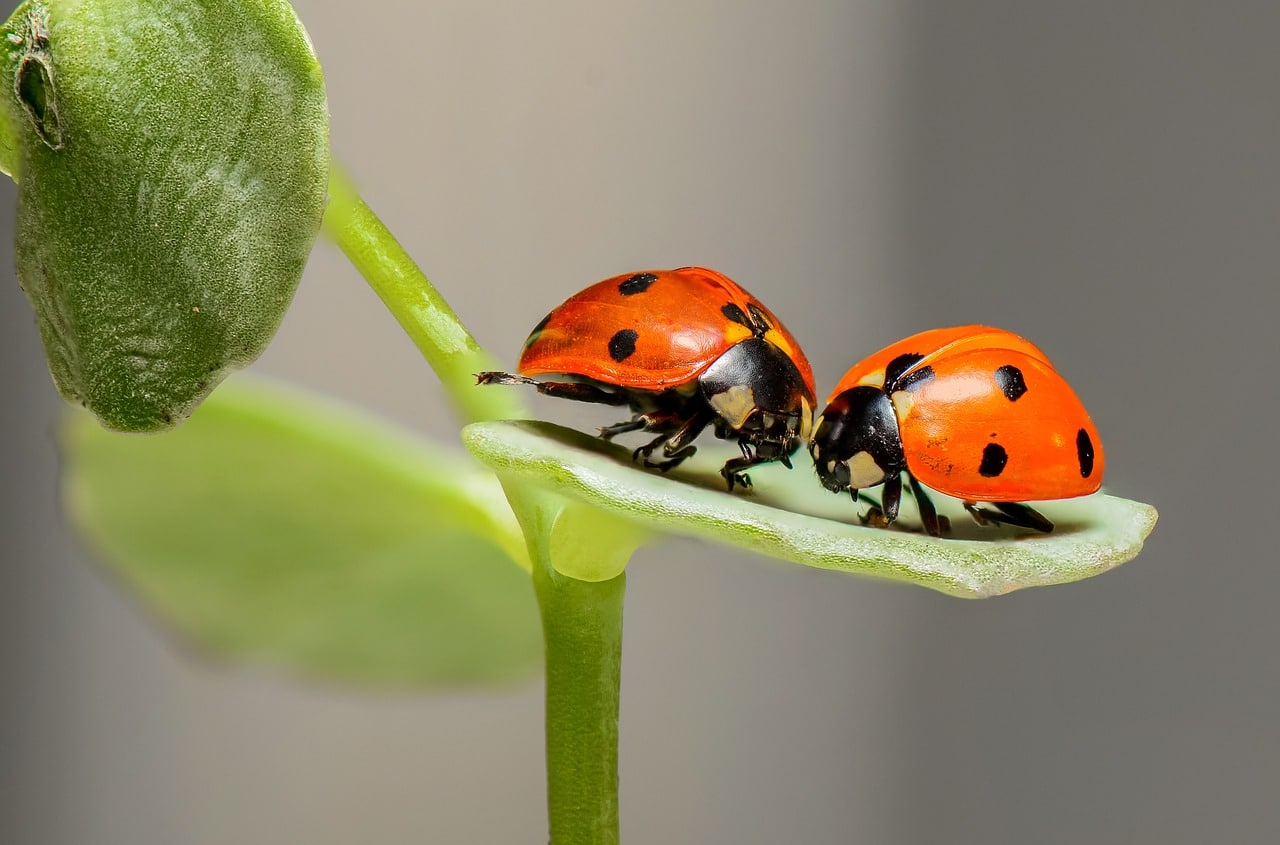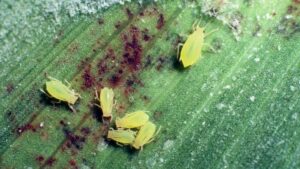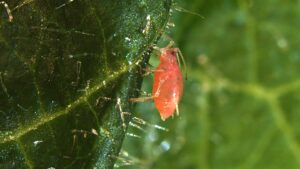Penn State researchers look to ladybugs’ predatory scent to safeguard crops
Aphids feed on the sap of plants, including those grown for seed production. Heavy infestations can weaken plants, reduce their vigor, and ultimately decrease seed yield and quality.
Aphids are also vectors for a variety of plant viruses. They can transmit these viruses from infected plants to healthy ones during their feeding process. Some of these viruses can have detrimental effects on seed production, causing diseases that reduce seed quality and yield.
Pesticide use, while advantageous for global food security, can have negative effects on natural ecosystems and human health. In response to this issue, Penn State researchers, led by Sara Hermann from the College of Agricultural Sciences, have turned to an unexpected ally, the ladybug, to safeguard crops. By exploiting the chemical ecology of predator-prey interactions between ladybugs and aphids, Hermann’s team has developed an innovative pest management tool.
Their research, published in the Basic and Applied Ecology journal, has also led to a provisional patent application for this innovative approach. Ladybugs are well-known for their appetite for aphids. Hermann’s research, however, focuses on the non-consumptive dynamics between these organisms, particularly the aphids’ ability to detect and respond to the unique scents emitted by ladybugs as a warning signal to avoid predation.
“The major goal is to start to think outside the box,” said Hermann, the Tombros Early Career Professor and assistant professor of arthropod ecology and trophic interactions, in a Penn State news release. “We want to understand how the fear of being eaten influences behavior and physiology. We start with big ecological questions centered in agricultural systems to develop interventions. Using knowledge of basic ecological interactions that already exist, we can work with nature rather than against it.”
In collaboration with the Huck Institutes of the Life Sciences’ Center for Chemical Ecology at Penn State, Hermann’s research has identified the main compounds of the ladybug scent and demonstrated that this scent alone can alter aphid behavior. By diffusing the scent around plants, aphids are deterred, leading to a reduction in their feeding time and a 25% drop in their population numbers.
Hermann hopes that the commercial production of the scent’s components will make this intervention accessible for both commercial operations and consumers. The recent patent for the scent, obtained with co-author Jessica Kansman, assistant professor of plant sciences and plant pathology at Montana State University, may enable its use as a pest deterrent.
“Our work suggests that the presence of lady beetle odor cues alone may serve as a method to reduce aphid populations, at least short term, and could be a promising technique warranting further exploration,” Hermann said.
This scent intervention, developed for a widespread and destructive species of aphids, offers a sustainable agriculture solution that avoids the resistance issues commonly associated with pesticide use. Hermann plans to further investigate the community-wide impact of applying the ladybug scent to agricultural fields and explore similar predator-prey dynamics with new predators and parasitoids.
The research, supported by the United States Department of Agriculture and the National Institute of Food and Agriculture, highlights the potential of harnessing natural chemicals and ecological dynamics for sustainable, nature-inspired agricultural practices. For more information about the interdisciplinary work in the Hermann lab, visit her lab website.













